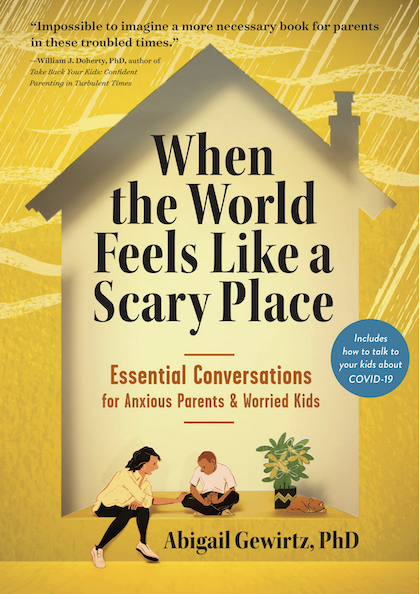Talking to Children about War [downloadable]
 International wars and conflict enhance our sense of danger and may cause worry about what will happen in the days and weeks ahead. A range of emotions (e.g., outrage, fear, anxiety and sorrow) are common and can change as the situation evolves.
International wars and conflict enhance our sense of danger and may cause worry about what will happen in the days and weeks ahead. A range of emotions (e.g., outrage, fear, anxiety and sorrow) are common and can change as the situation evolves.
They can create safety concerns for the region that reach into our own country. Some families may be worried about loved ones who are directly impacted, including those who live in the area; those who were visiting and are trying to get back to the United States; or those who are deployed as part of the military, government, or a relief organization.
When these events happen internationally, families that have roots in this region may worry about their children’s exposure to escalating verbal aggression, hate crimes, and threats at school or in their communities. Most children will learn about the war and its consequences through the media or social media.
Caregivers and children alike may be struggling to make sense of what they are seeing and hearing. Children of all ages will be turning to trusted adults for help and guidance. Parents and caregivers can help navigate what they are seeing and hearing by having a conversation with them, acknowledging their feelings, and finding ways to cope together.
This fact sheet from the National Child Traumatic Stress Network discusses:
- how to talk to children about war
- potential impact and considerations
- understanding media exposure, and
- fostering resilience
Read the fact sheet below or download a PDF of this resource from NCTSN.
Source: National Child Traumatic Stress Network | Talking to Children about War, https://www.nctsn.org/sites/default/files/resources/fact-sheet/talking-to-children-about-war_0.pdf | Public domain. Funded by the Substance Abuse and Mental Health Services Administration (SAMHSA), US Department of Health and Human Services (HHS).







